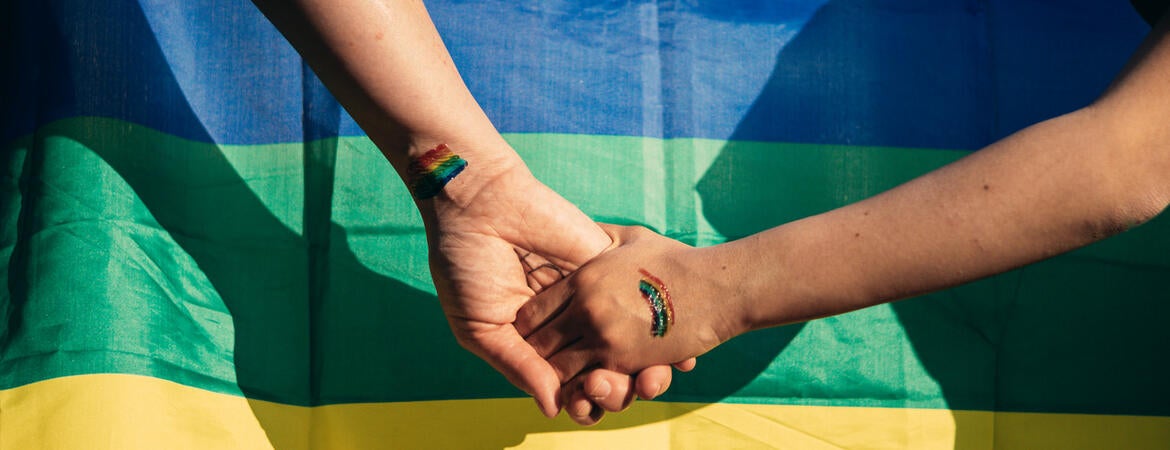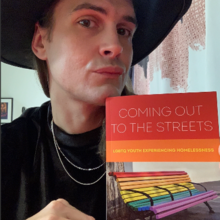
A $400,000 National Science Foundation grant is supporting a two-year study on LGBTQ youth who have limited support from their parents — a situation that can potentially lead teens into homelessness.
This longitudinal study of 83 youth is co-led by Brandon Andrew Robinson, chair and associate professor of UC Riverside’s Gender and Sexuality Studies Department, and Amy L. Stone, sociology and anthropology professor at Trinity University in San Antonio, Texas. The study is called the Family, Housing, and Me Project, or FHAM Project.
The research aims to understand how LGBTQ youth find support in grandparents, aunts, uncles, cousins, and older siblings, and how this extended family support could prevent youth from living in shelters or on the streets, especially if the youth are experiencing conflict with their parents.
This is the second set of grants the NSF has awarded to Robinson and Stone, now totaling $1 million, Robinson said. Research is focused on 83 LGBTQ youth living in the Inland Empire and South Texas. A majority of these participants are Black, Latinx, Asian, and/or Indigenous and most are also transgender, non-binary, or another gender identity that is not cisgender.
Youth will participate in the study over a two-year period, enough time to capture their emergence into adulthood. The longitudinal study last year recorded the lives of participants who were between 16-19 years old. This year those same participants will become 17 to 20-year-olds. Capturing these years as they move into adulthood is crucial, Robinson said.
Robinson and Stone said they expect the outcomes of this study will fuel new programs targeting non-parent family members as important allies in supporting the housing stability of LGBTQ youth. These programs will work toward reducing the existing economic and social inequalities of LGBTQ youth with an emphasis on techniques to support Black, Latinx, Asian, Indigenous, and non-metro LGBTQ youth, who often experience the greatest inequalities.
The study includes 42 participants from the Inland Empire and 41 from South Texas, two geographic areas the researchers have identified as understudied places in LGBTQ research.
"We know so little about the lives of LGBTQ youth in South Texas, particularly how family members can prevent them from becoming unhoused," Stone said. "This study is an important contribution to preventing a major public health crisis, that of LGBTQ youth homelessness."
Expanding the understanding of familial relationships has already allowed researchers some insight, Robinson said. For example, aunts, are keystones in offering acceptance, support, and housing stability.
“Amy and I are trying to figure out why parents are so deeply invested in their child’s gender and sexuality, in a way that aunts are not,” said Robinson, author of the 2020 book “Coming Out to the Streets: LGBTQ Youth Experiencing Homelessness.” “Why that is, what that looks like, and what is going on are all important questions to help determine how safe and how accepted these young people feel.”





